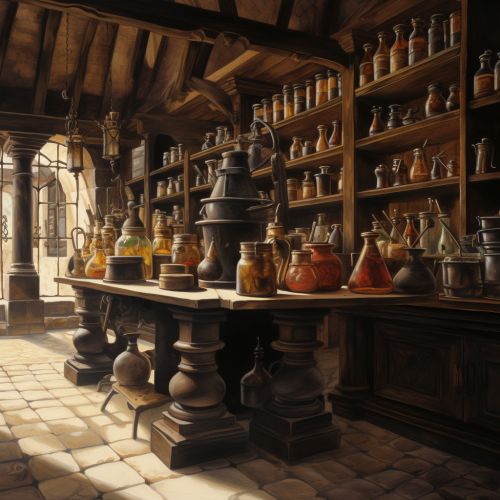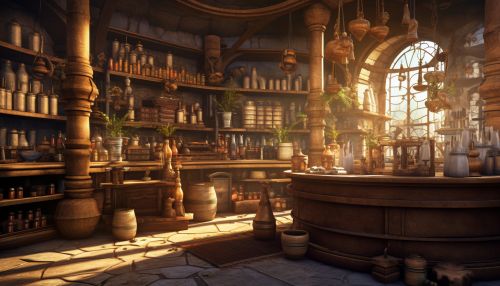Pharmacy
Introduction
Pharmacy is the science and technique of preparing, dispensing, and reviewing drugs and providing additional clinical services. It is a health profession that links health sciences with pharmaceutical sciences and aims to ensure the safe, effective, and affordable use of drugs. The professional practice is becoming more clinically oriented as most of the drugs are now manufactured by pharmaceutical industries.
History
The origins of pharmacy can be traced back to ancient times when early pharmacists, known as apothecaries, used natural compounds to treat ailments. The evolution of pharmacy has followed the progression of human civilization, with notable advancements during the Islamic Golden Age and the European Renaissance.


Branches of Pharmacy
Pharmacy is divided into several branches, each with its own specific focus and responsibilities.
Community Pharmacy
A community pharmacy is a retail pharmacy where pharmacists interact directly with patients, providing medication and health consultations. They also offer services related to health promotion, disease prevention, and patient education.
Hospital Pharmacy
Hospital pharmacists work in hospitals and provide medications for patients admitted for treatment. They also advise medical staff about drug selection and usage.
Industrial Pharmacy
Industrial pharmacists work in pharmaceutical manufacturing industries, where they are involved in drug production, quality control, and research and development.
Compounding Pharmacy
Compounding pharmacists prepare personalized medications for patients. This involves altering or combining existing drugs to meet specific patient needs.
Regulatory Pharmacy
Regulatory pharmacists work in government and regulatory agencies, ensuring the safety, efficacy, and quality of drugs.
Pharmaceutical Sciences
Pharmacy is closely related to the pharmaceutical sciences, which include the following disciplines:
Pharmacology
Pharmacology is the study of how drugs interact with living organisms to produce a change in function. It involves understanding the properties, effects, and mechanisms of drugs.
Pharmaceutics
Pharmaceutics is the discipline of pharmacy that deals with the process of turning a new chemical entity (NCE) or old drugs into a medication to be used safely and effectively by patients.
Pharmacognosy
Pharmacognosy is the study of medicinal drugs derived from plants or other natural sources.
Pharmacotherapy
Pharmacotherapy is the treatment of disease through the administration of drugs.
Education and Regulation
Pharmacy education and regulation vary widely by country. In many countries, it involves several years of university study followed by a period of practical training or internship. Pharmacists are also required to register with a professional regulatory body.
Future of Pharmacy
The future of pharmacy is moving more towards a patient-centered approach, with pharmacists playing a key role in patient care. This includes providing medication therapy management and conducting wellness checks.
